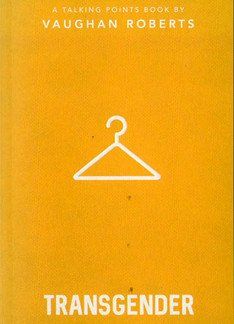Vaughan Roberts’ latest book is a good introduction to a topic that has hit our culture like a juggernaut. At just 64-pages, it is a quick read.
Chapter 1 defines terms. What does ‘transgender’ actually mean? Is it sexual? Chapter 2 looks at why our culture has moved so quickly from a ‘yuk!’ reaction to a ‘yes!’ reaction to transgender. Roberts argues that it’s the consequence of the ‘story’ the West has told itself — that we’re only truly free when we get to define ourselves.
Chapters 3-5 show how the Christian ‘story’ says something very different, using the basic structure of creation, Fall and rescue. Creation means we don’t get to make up our identity, but receive it from God, our bodies being one part of his creation. The Fall means our bodies, minds and hearts are disordered, so we experience things (including transgender feelings) that are wrong. The rescue of Jesus Christ means a hero has come to give us a secure identity now, and later, at his return, a fully restored body, mind and heart.
As we await the end, the Holy Spirit helps us to live obedient lives, which means embracing the sex of our bodies whatever we may feel about them. Chapter 6 concludes the book by answering some practical questions concerning friends, parents and churches. For example, if someone has ‘transitioned’, the author counsels using the name by which the person wants to be called.
Like all of Roberts’ books, it is clear and readable. He writes about the subject pastorally. He’s keen to remind us that this isn’t just about ideas and words, but about real people who need to be loved. Although brief, he engages with the issue more deeply than simply quoting Deuteronomy 22:5, which prohibits cross-dressing.
I have one area of pushback. At one point, Roberts says ‘we shouldn’t feel guilty or ashamed about [same-sex attraction]’ (p.51). He compares transgender feelings to a physical disability (p.60), which we must learn to respond to in a godly way.
I think this is unhelpful. Even if I haven’t chosen a sinful desire, my experience of it is still sinful in a way that having a broken leg is not. The precise cause of our sinful desires may be unknown and unchosen, but that doesn’t take away their sinfulness.
I know that this way of talking is designed to help Christians be honest about what they’re feeling — pastorally, that is wise — but it will not serve us well in the long run if we re-label our sinful desires as neutral circumstances. I’m not just a ‘victim’ of the Fall; I’m culpable.
Despite that caveat, this book is still a helpful entry-point for Christians wanting to get a handle on the subject.
Simon Arscott
Ilford




